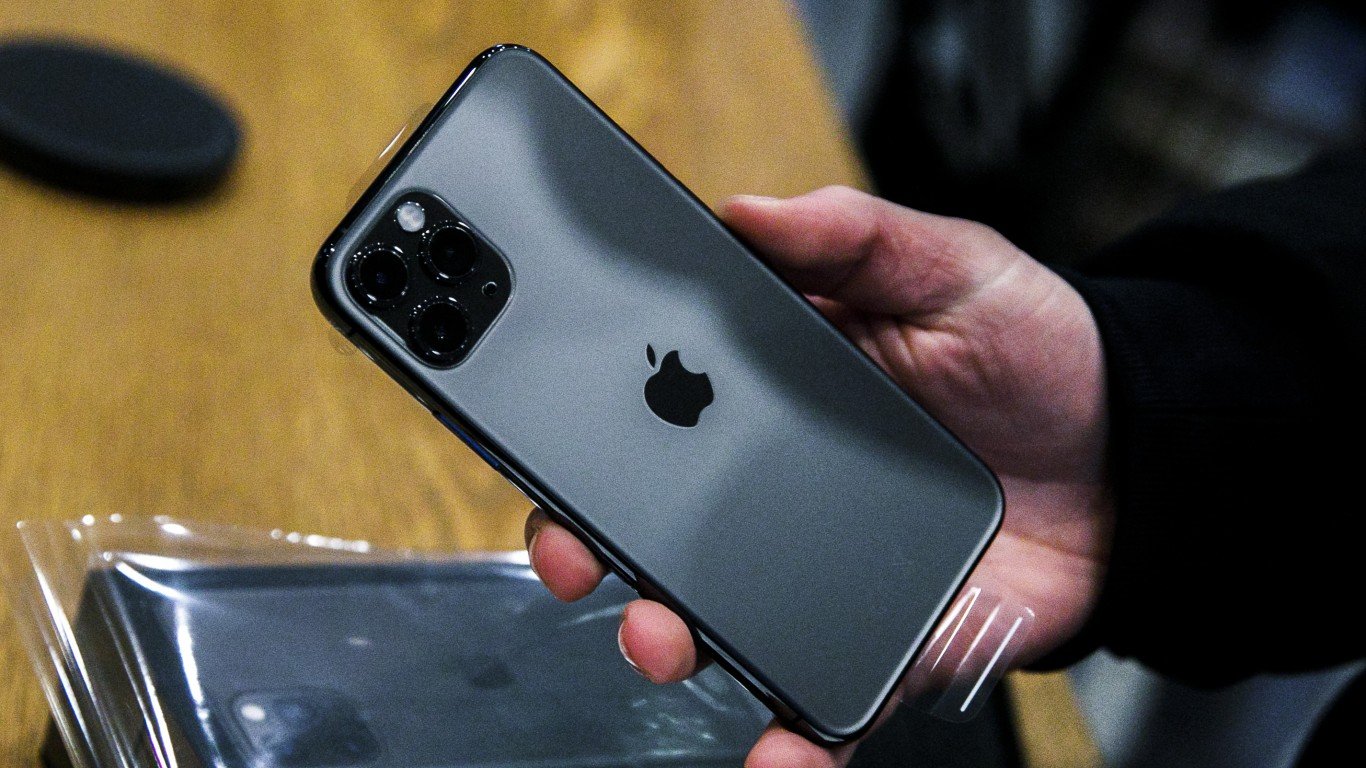

As with all outbreaks and panics, thousands of illnesses and a rising death toll is what matters the most. There are still economic impacts that occur as well. With the outbreak of the coronavirus in China having spread to other nations, there is now practically no way that China will not take a serious hit to its first-quarter gross domestic product (GDP) as the nation faces more and more shutdowns, travel bans, extended holidays and so on. This also will have a big impact on U.S. and western companies with significant operations and sales in China.
Apple Inc. (NASDAQ: AAPL) is one of the most widely followed and widely held companies in the world. After its announcement that it would temporarily shut down all of its stores in China, Apple faces a financial impact as well. It could rapidly recover in the following weeks or the next quarter, but a formal estimate has been offered up.
Daniel Ives of Wedbush Securities, who has been and remains one of the largest Apple bulls among all analysts, has outlined the potential impact of China’s store closures. First and foremost, Apple is not the first company to shut its China stores (and corporate offices). McDonald’s and Starbucks have already done the same. That current period is through February 9, but the actual dates may change, of course, depending on the progression or contraction of the coronavirus.
Ives believes that much of the buying of iPhones and AirPods and other items in stories in China and surrounding countries would have taken place ahead of the Chinese New Year consumer. That is also ahead of the mass closures in China and travel bans that have been announced since. Strong sales in December and January likely were already in the books for Apple, with strong annualized gains. Unfortunately, up to a million iPhones may be shifted from the current quarter (March) to the second quarter (June). Ives said:
We believe with the limited transportation in major cities throughout China and limited foot traffic in Shanghai, Beijing, and other cities that at most approximately 1 million iPhones in the region could be at risk of shifting out of the March quarter into the June quarter if this continues into late February which would be less than 3% of Chinese annual iPhone sales at most and a very containable risk. Furthermore with the vast majority of sales online we view a one week closure of Apple stores as having a negligible impact thus far despite the scary and concerning headlines from the region.
One issue that was already shown to have set the stage for this was Apple’s wider guidance for the coming quarter. Ives also believes that Apple “is on pace to convert more than half of the 60 million to 70 million iPhones currently in the window of an upgrade opportunity and should be a source of clear strength going forward.”
Ives does note that the coronavirus outbreak is obviously a sad situation and brings added headline concerns for investors. That said, Apple’s fundamental impact from this coronavirus outbreak to Apple’s actual revenues likely will be negligible as there were no major reductions in iPhone and related prices nor any last-minute sales heading into the Chinese New Year.
Apple shares fell over $14 (4.4%) on Friday to close down at $309.51. That was after having hit a prior high of $327.85 after earnings, and it is now a lower close than all but one pre-earnings day since January 9. Wedbush maintains an Outperform rating and the formal $400 price target, which is also the street-high target price. Ives concluded:
While China is a major part of our bull thesis and growth story of Apple for the coming 12 to 18 months, we do not view the impact of this virus epidemic as changing the numbers/merits behind the renaissance of growth in China for FY20/FY21 with a 5G super cycle the longer term driver. We would be buyers on weakness and reiterate our Outperform rating and $400 price target.
Apple’s most recent consensus analyst target price from Refinitiv has risen handily since the start of 2020. It now sits at $328.42 after so many analysts have hiked their targets.
Thank you for reading! Have some feedback for us?
Contact the 24/7 Wall St. editorial team.
 24/7 Wall St.
24/7 Wall St.


